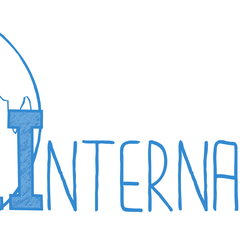
Launch of U.S. State Legislative Guide for Insulin for All
14 May 2020, 10:41 a.m. in #insulin4all USA by T1International
T1International is pleased to introduce a new advocacy resource, the U.S. Legislative Guide for insulin for all: How States Can Make Medicines Affordable. The resource, developed in partnership with Public Citizen, outlines a variety of legislation that could help to make insulin more accessible and affordable, including:
- Emergency Insulin Refills (also known as Kevin’s Law)Emergency prescription refill legislation, known in many states as Kevin's Law, allows a pharmacist to use their professional judgement if a doctor cannot be reached to authorize a prescription and dispense an emergency supply of a chronic maintenance drug.
- Insurance Copay CapsCopay caps set out-of-pocket limits for insulin for those with certain insurance plans. Though these bills are often referred to as “price caps,” they do not cap the price, but the out-of-pocket expense that patients pay at the pharmacy counter. This legislation excludes the uninsured, as well as those that are on insurance plans that are subject to federal regulation.
- Insulin Assistance ProgramsAn insulin assistance program allows some individuals to receive insulin at participating pharmacies with a nominal co-payment. Minnesota’s Alec Smith Emergency Insulin Act is one example of such legislation.
- TransparencyTransparency legislation allows states to request detailed information about research and development costs, marketing expenses, pricing strategies and profits for prescription drugs, including insulin. While transparency by itself does not reduce the price of insulin, it gives us a better picture of what is happening behind the scenes.
- Limiting Price SpikesBy fining companies for raising drug prices beyond inflation, states could help prevent further price-gouging.
- Drug Affordability BoardsMuch like how they set rates for electricity and water, states can regulate medicine prices to make insulin more affordable. Drug affordability boards would transform the role of states in regulating drug prices by developing an independent body to evaluate and set limits on the prices of medicines.
- Competitive Licensing RequestsStates can ask the federal government to break patent monopolies and authorize low-cost generic competition. Under the Eleventh Amendment, the state could also explore legal claims about how its sovereignty could protect it from patent infringement claims.
- Public Production of InsulinStates can produce their own affordable insulin. Public insulin could lower prices and increase access. A not-for-profit, government insulin manufacturer could produce insulin at an affordable price and ensure a reliable supply.
Across the U.S., #insulin4all Chapters and advocates have been instrumental in asking for comprehensive reform to make insulin more accessible. From the Alec Smith Insulin Bill in Minnesota to Kevin’s Law being passed in numerous states, advocates are sharing their stories and building momentum.
For decades, an unspoken truth in Washington and state capitals across the country was that the pharmaceutical industry was untouchable. Now, thanks to patients speaking up and using their voices, things are different. Patient stories have changed hearts and minds, and now they’re starting to change policies so that everyone can access and afford the medicines they need.
This Legislative Guide provides advocates with information on bills that may be possible to pursue in their states. Paired with many of T1International’s other resources, including our Advocacy Toolkit and Guide for Contacting Legislators, it is our hope that this new Legislative Guide resource helps individuals in their fights, and moves the United States closer to making insulin for all a reality.








